QuestionHey,
I have had my leopard gecko for about 5 years; about 2 months ago she stopped eating crickets. after about a week i started to worry and got some wax worms and she ate them. sence then it is all she will eat. my question is can she survive eating only wax worms? and how can i get her to start eating crickets again?
AnswerHi Eric,
Leopard geckos need a variety of insects in their diets, not just crickets. I've included a care sheet that lists various insects to offer your leo.
Wax worms are called the candy of the reptile world...just like candy is OK for us in small amounts on occasion, its the same with the wax worms and the reptiles. They are very high in fat content which can lead to fatty liver disease. Try getting some correct sized superworms or better yet, silkworms...or Trevo(also called butterworms)
On the crickets, one thing you can try is to (eeeeewwwww) break the hind legs on them and place them in a dish...allow a wax worm to crawl around in the dish with them...then remove the wax worm before offering the crickets. One good thing about an older leo, that has a nice fat storage in their tails(this is why their tails look fat) is that they can go with out eating for a while.
Sometimes tough love is needed and she needs to get hungry!! If she refuses to eat any of the other insects offered, remove them....then...offer them again later. As long as she has a good fat storage, if she doesn't eat in a week or two, it won't hurt her..of course you need to watch that she isn't loosing too much fat in her tail!!!
Its very important to get her off the wax worms...to prevent health problems. I've gone through the same thing with my leos and in a week or two they realize that the other insects taste pretty darn good over no food at all!!
Good luck and be sure to read the info below including the links I've provided... Keep me posted!!
BASIC CARE FOR A LEOPARD GECKO
Leopards are pretty easy to care for but they do need
special care. Here are some of the basic needs of your
gecko.
HOUSING: The need to have at least a 20 gallon long tank for
one Leo. This needs to have a secure fitting screen top...they can be quite the escape artists!!! They need to have a humid hide box.You can make
this with something as simple as a small plastic dish with a
hole cut in one side and a small mesh bag filled with some
Sphagnum moss, coconut bark or Peat moss that you mist.
I made mine out of the small plastic folgers coffee containers...I cut an opening in the lid..and put the moss in..they LOVE it. I use the terrarium moss in mine.
I use that on the warm side of the tank. Be sure to provide a cool hidebox on the other end. I use the critter caves which you can purchase. NOT the ones that have heat in them!!!!
Provide secure climbing areas for your gecko. Fake plants, rocks and branches are all fine to use.
SUBSTRATE:(that's the stuff on the floor of your tank) News
paper, lizard carpet or paper towels work great and are easy
to clean and are much safer than any loose substrate.
TEMPERATURES: They need a warm area of 88-90 degrees and a
cooler area in the upper 70s, low 80s. At night their
temperature can drop to the low to mid 70's.
Never use a hot rock for a leopard gecko...or any reptile.
They can severely burn any reptile. You can use a heating
pad under the tank, or you can use a regular household
lightbulb in a dome fixture with a ceramic socket in it to
keep the warm area at the 88-90 degree area.At night, no white light. If room temperatures stay above 70 degrees, no extra night heat is needed.
You can use the special nighttime lights that are designed for reptiles. I like using a ceramic heat emitter on a thermostat for nighttime heat.
DO NOT use black lights or party lights as they can cause eye damage!!!!
The wattage you use will vary based on room temperature and size of tank.
LIGHTING: Leopard geckos do not need UVB lighting but it does not hurt them to give them uvb. They should have some type of light during the day, be it a uvb tube, regular florescent light, reptile day light or regular household lightbulb. NO white lights at night!!!
FEEDING: Geckos should not be fed crickets or other insects that are bigger than the space between their eyes. Crickets and other food items such as silk worms, super, and an occasional treat of a wax worm, need to be dusted with a calcium supplement two times a week and also they should have a small dish of calcium in their tank. I use the lid of a milk jug for the little dish of calcium in their tank. For dusting the insects, Use a calcium with no added phosphorus.
Insects must be gut loaded(fed) for at least 48 hours prior to feeding your gecko. Remove any uneaten crix or superworms after 15-20 minutes..... Place a piece of cut potato in the tank so that if you have missed any uneaten insects, they will eat the potato instead of nibbling on your gecko!!!
You have to be sure to feed your crickets the right foods
before feeding them to your gecko. If your crickets/insects are not healthy and well fed, your gecko will not get the nutrition
he needs. You can gut load your crickets greens, veggies, cereals or specially designed commercial foods for crickets or the insects you are feeding.
Be sure to have a small dish of clean water for your gecko
at all times!!
You can offer them some baby food or fruits on occasion ...
Mine will even eat a small piece of watermelon now and then.
WATER: always provide a dish of drinking water. If you choose to mist your gecko to drink, its best to not get the tank too wet as that they do not do well with higher humidity. Sometimes its better to take your leo out of their tank to mist them to get them to drink!!!
HANDLING: Some geckos enjoy being held...others prefer not to be handled at all. Be sure to be very gentle when holding your leo and NEVER grab them by the tail! Their tails are extremely fragile and will break.
I do suggest finding a vet that can treat reptiles BEFORE you actually need one!!! To find a vet that is able to care for reptiles:
http://www.anapsid.org/vets
For more information on leopard geckos:
http://www.thegeckospot.com/leocareindex2.html
http://www.drgecko.com
If you have anymore questions or don't understand something, please be sure to ask.
Diane

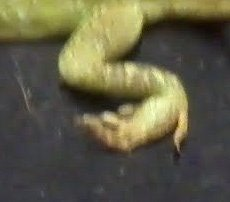 Water dragon toes
Question
kirk
Hello,
My water dragon is
Water dragon toes
Question
kirk
Hello,
My water dragon is
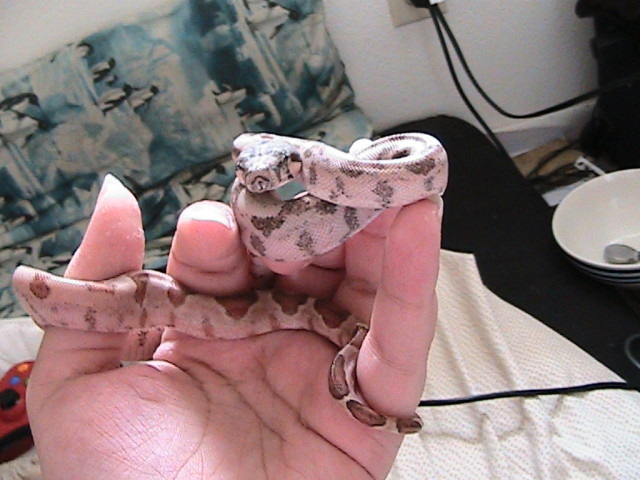 Baby Hog Island
QuestionQUESTION: Hi, my Hog Island Boa is a month old
Baby Hog Island
QuestionQUESTION: Hi, my Hog Island Boa is a month old
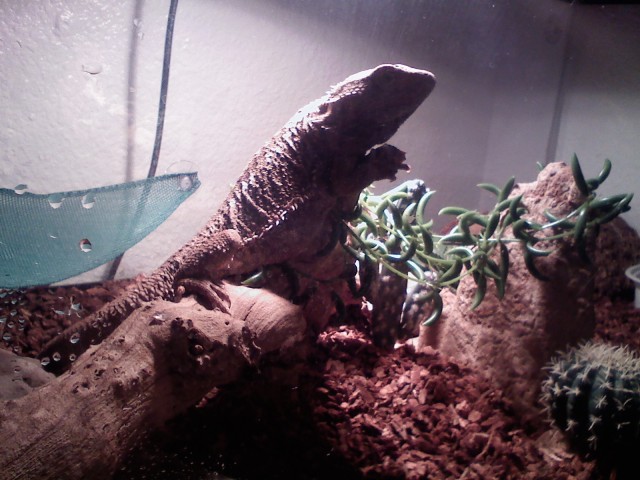 rescued a beardie
Question
kittie our bearded dra
we got two bearded drag
rescued a beardie
Question
kittie our bearded dra
we got two bearded drag
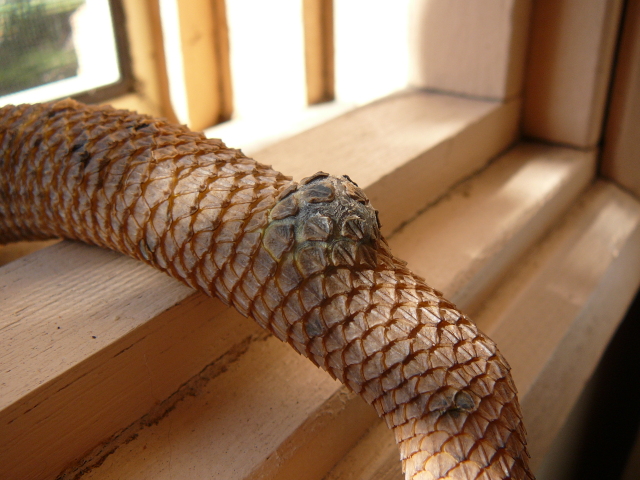 My beardie has developed a lump on her tail
QuestionTrigger
QUESTION: Hi, weve had Trigger f
My beardie has developed a lump on her tail
QuestionTrigger
QUESTION: Hi, weve had Trigger f
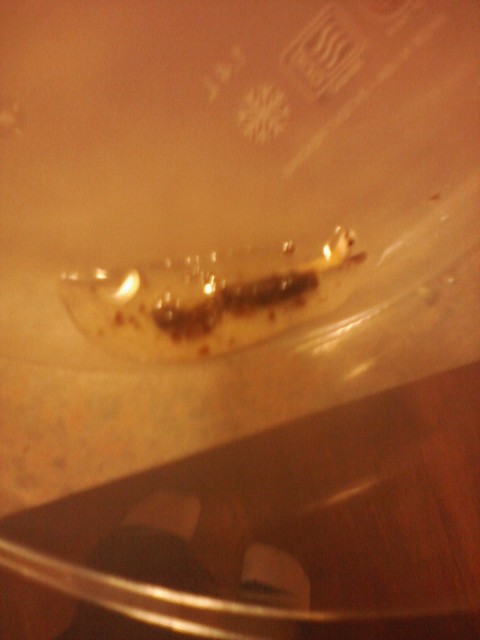 Leopard Gecko Diarrhea Picture
Question
Bellas diarrhea
When I take bell out to
Leopard Gecko Diarrhea Picture
Question
Bellas diarrhea
When I take bell out to